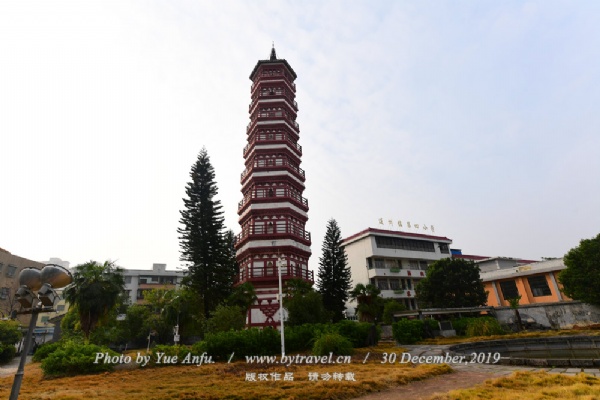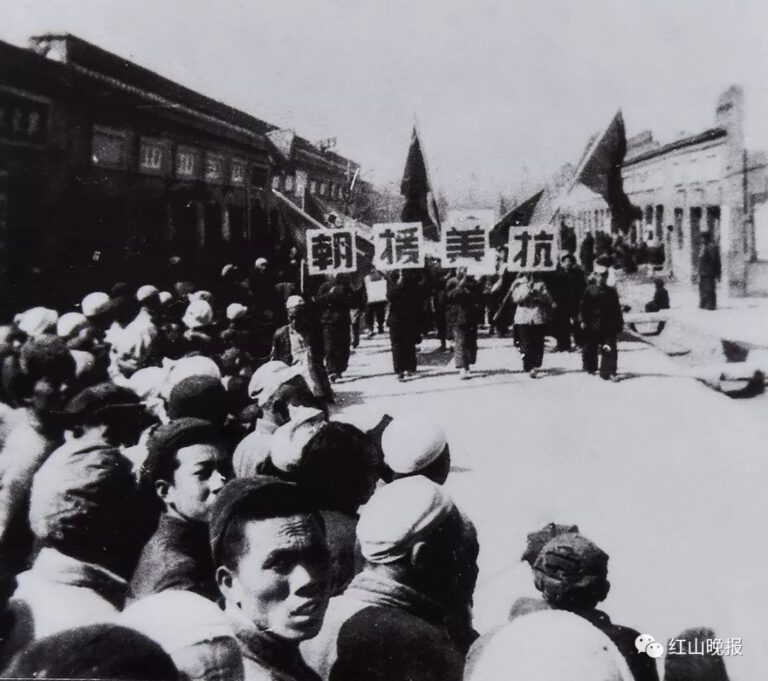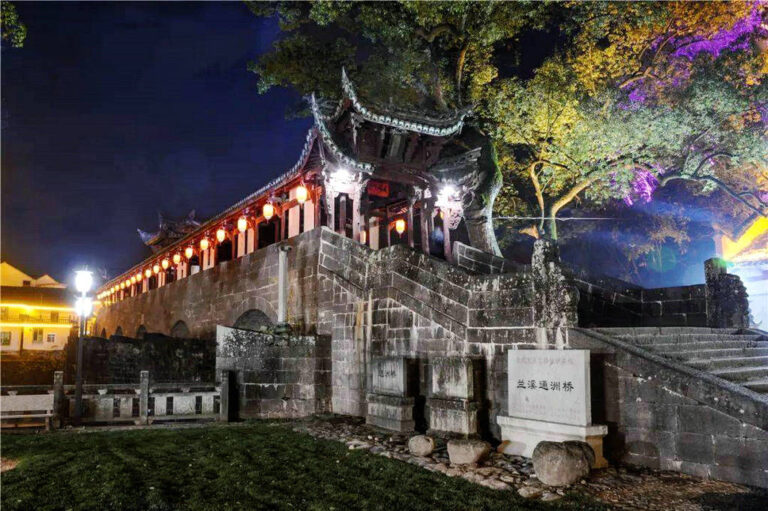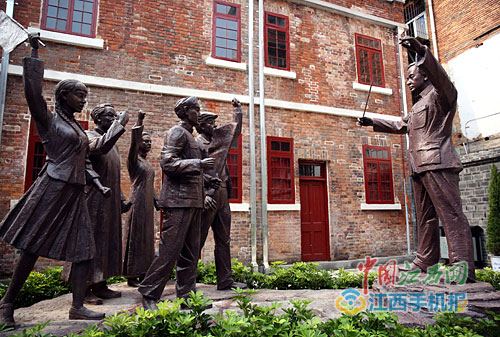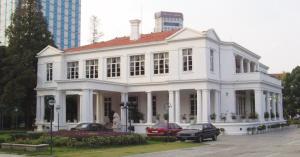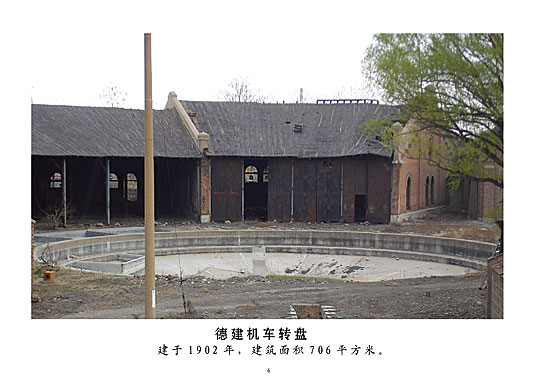Discovering the Charm of Baoshan Guoshang Muyuan: A Hidden Gem in Yunnan
An Essential Guide to Visiting Baoshan Guoshang Muyuan
In This Guide
- An Essential Guide to Visiting Baoshan Guoshang Muyuan
- The Rich History of Baoshan Guoshang Muyuan
- Main Highlights: What to See at Baoshan Guoshang Muyuan
- Planning Your Visit: A Practical Guide
- Tickets, Hours, and Booking
- How to Get There
- Local Cuisine and Accommodation
- Frequently Asked Questions
- Final Thoughts on Your Trip
Nestled in the captivating landscapes of Tengchong, Yunnan Province, Baoshan Guoshang Muyuan, also known as the National Martyrs’ Cemetery, serves as a poignant testament to the sacrifices made during one of China’s most tumultuous periods—the Second Sino-Japanese War. This solemn site, which encompasses over 53,000 square meters, not only honors the valiant soldiers of the Chinese Expeditionary Force who fought fiercely to reclaim lost territories but also stands as a vital educational resource for visitors eager to understand the depths of China’s wartime history.
Established shortly after the liberation of Tengchong in 1945, the cemetery is a sanctuary for more than 3,300 martyrs, including both Chinese and allied soldiers. As you stroll through the serene grounds, lined with tall pines and meticulously maintained paths, the gravity of the history surrounding you becomes palpable. The main structures—such as the memorial hall, the monument to the fallen, and the peaceful tombs—invite reflection and respect, allowing visitors to connect with the past and honor those who gave everything for their country.
Adjacent to the cemetery is the Tengchong Anti-Japanese War Memorial Museum, which adds another layer of understanding to your visit. Here, exhibits featuring artifacts, photographs, and detailed accounts of the heroic struggles fought in this region illuminate the sacrifices made and the resilience of the human spirit. The museum and cemetery together are not just sites of remembrance; they are powerful reminders of the cost of war and the enduring spirit of patriotism.
Every year, more than 1.4 million visitors traverse these grounds, drawn by a shared sense of duty to remember and learn. Whether you are a history buff, a student of cultural heritage, or simply a traveler seeking to understand the complexities of China’s past, a visit to Baoshan Guoshang Muyuan promises to be a profoundly moving experience. In this space of quiet reverence, the voices of the past resonate, urging us to remember, reflect, and honor the legacy of those who came before.
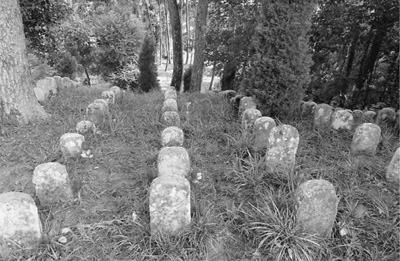
Baoshan Guoshang Muyuan.
The Rich History of Baoshan Guoshang Muyuan
The Baoshan Guoshang Muyuan, also known as the National Martyrs’ Cemetery, stands as a solemn reminder of the sacrifices made during the Second Sino-Japanese War. Located in the city of Tengchong, Yunnan Province, this site was established to honor the valiant soldiers of the Chinese Expeditionary Force, particularly those from the 20th Army Group who fought bravely in the region.
The cemetery’s origins trace back to the tumultuous events of May 1942, when Japanese forces invaded the western border of Yunnan, capturing significant territories and effectively severing the vital supply line known as the Burma Road. This strategic route was crucial for the Allied forces, as it facilitated the delivery of military aid to China. In response to this encroachment, the Chinese Expeditionary Force launched a counter-offensive in 1944, culminating in the intense Battle of Tengchong, which lasted 43 days. This fierce conflict marked a turning point, as it was the only successful liberation of a major city from Japanese control during the war in China.
The cemetery was proposed by Li Genyuan, a prominent figure in the Nationalist government, who emphasized the need for a memorial to commemorate the fallen heroes. Construction began in the winter of 1944 and concluded in July 1945, coinciding with the eighth anniversary of the Marco Polo Bridge Incident, which marked the start of full-scale war in China. Covering an area of approximately 37,884 square meters, the cemetery features an array of structures, including a memorial archway, a martyrs’ shrine, and a monument dedicated to the soldiers who perished in the Tengchong campaign.
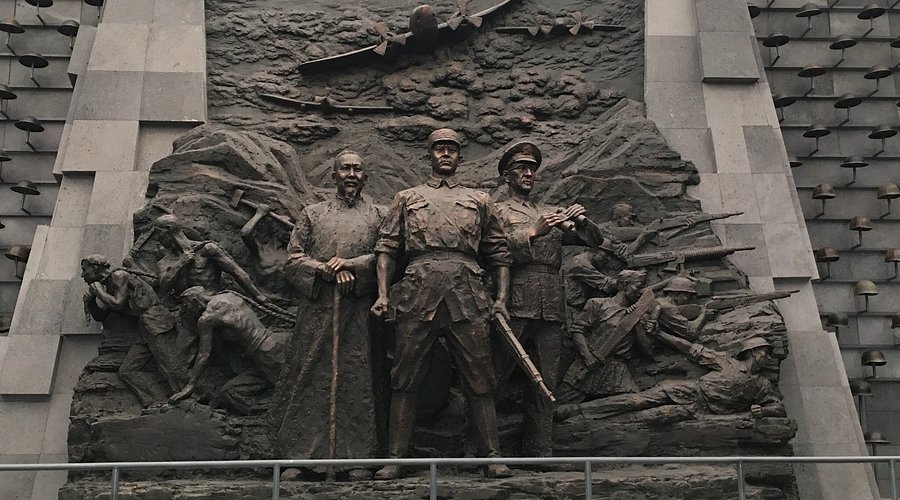
Baoshan Guoshang Muyuan.
In subsequent decades, the Guoshang Muyuan underwent several renovations and expansions, reflecting its growing importance as a site of national remembrance. It was officially recognized as a key cultural and historical site by various government bodies, including the Ministry of Culture and the National Defense Office, and has become an essential destination for patriotic education and historical reflection. The cemetery houses over 3,300 memorial stones, honoring both Chinese and allied soldiers, and continues to draw thousands of visitors each year, serving as a poignant reminder of the sacrifices made during one of China’s darkest periods.
The adjacent Yunnan Tengchong Anti-Japanese War Memorial Museum, completed in 2013, further enriches the visitor experience by providing detailed exhibits on the history of the war, showcasing artifacts, photographs, and personal stories that highlight the resilience and heroism of those involved in the conflict. Together, the cemetery and the museum form a significant historical complex dedicated to remembering the past and educating future generations about the sacrifices made in the fight against aggression.
Main Highlights: What to See at Baoshan Guoshang Muyuan
The Baoshan Guoshang Muyuan, or National Martyrs’ Cemetery, is a poignant tribute located in the picturesque city of Tengchong, Yunnan Province, China. Nestled alongside the tranquil Die Shui River and the scenic foothills of the Laifeng Mountain, this memorial site spans over 53,000 square meters and serves as both a burial ground and a museum dedicated to the brave soldiers who sacrificed their lives during the Second Sino-Japanese War.
Visitors to the cemetery can expect an immersive experience steeped in history and reverence. The site is home to more than 3,300 tombstones, honoring the fallen members of the Chinese Expeditionary Forces and Allied troops who fought valiantly against Japanese aggression. Each tombstone tells a story of courage and resilience, inviting guests to reflect on the sacrifices made for national sovereignty.
The main entrance, marked by an imposing archway, leads into a solemn pathway that guides visitors through various memorials, including the Loyal Martyrs’ Hall, a commemorative tower, and the expansive Martyrs’ Square. Here, the atmosphere is charged with a sense of solemnity, as the lush pine trees and manicured gardens provide a serene backdrop for contemplation. The inscriptions and memorials throughout the park highlight the contributions of key military leaders and local heroes, fostering a deeper understanding of this crucial chapter in Chinese history.
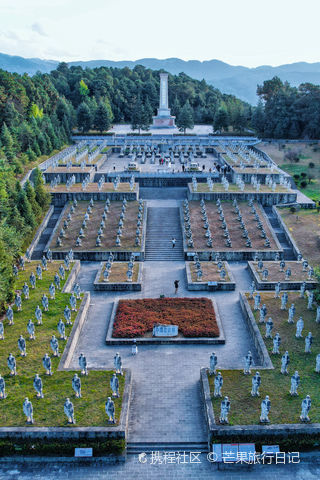
Baoshan Guoshang Muyuan.
Adjacent to the cemetery lies the Tengchong Western Anti-Japanese War Memorial Museum, a modern facility that houses a rich collection of artifacts, photographs, and multimedia exhibits chronicling the hardships and heroism of this tumultuous period. The museum’s design combines both aesthetic appeal and functionality, with its V-shaped architecture symbolizing victory. Visitors can explore various thematic sections that detail critical battles, the lives of soldiers, and the strategic significance of the Yunnan-Burma Road during the war.
This site is not just a place for remembrance but also serves as a vital educational resource, drawing over 1.4 million visitors annually. It has been recognized as a National Patriotic Education Demonstration Base, making it an essential stop for those seeking to understand the complexities of China’s wartime history.
In addition to its historical significance, the cemetery is surrounded by stunning natural landscapes, making it a peaceful retreat for reflection and remembrance. Whether you are a history enthusiast or simply looking for a moment of contemplation in a beautiful setting, Baoshan Guoshang Muyuan offers a profound and moving experience that honors the legacy of those who fought for freedom and justice.
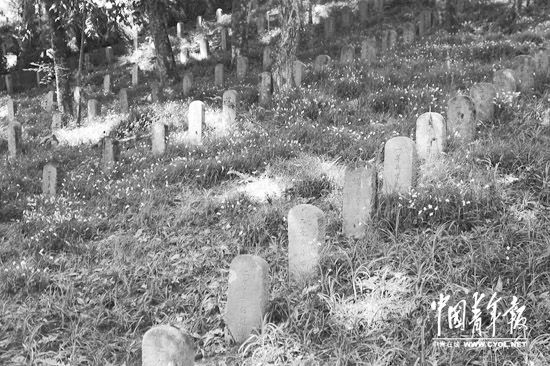
Baoshan Guoshang Muyuan.
Planning Your Visit: A Practical Guide
Practical Guide to Baoshan Guoshang Muyuan (国殇墓园)
Visiting the Baoshan Guoshang Muyuan, or the National Martyrs’ Cemetery, offers a profound glimpse into China’s wartime history, particularly the sacrifices made during the Second Sino-Japanese War. This site not only honors the valor of the soldiers but also serves as a poignant reminder of the impact of war on national identity and collective memory. Here’s everything you need to know for your visit.
Location and Access
- Address: The cemetery is located in Tengchong County, Yunnan Province, near the banks of the Die Shui River and at the foot of the Laifeng Mountain.
- How to Get There: The nearest major city is Baoshan, from which you can take a bus or hire a taxi to reach Tengchong. The journey typically takes around 1.5 to 2 hours. Local transportation options are available, making it accessible for visitors.
Operating Hours
- Visiting Hours: The cemetery is open from 9:00 AM to 5:30 PM on weekends, and 9:00 AM to 5:00 PM on weekdays. Last admissions are typically 30 minutes before closing.
- Closed Days: The site is closed on Mondays, so plan your visit accordingly.
Admission
- Entry Fee: Admission to the cemetery is free, making it an accessible destination for all visitors.
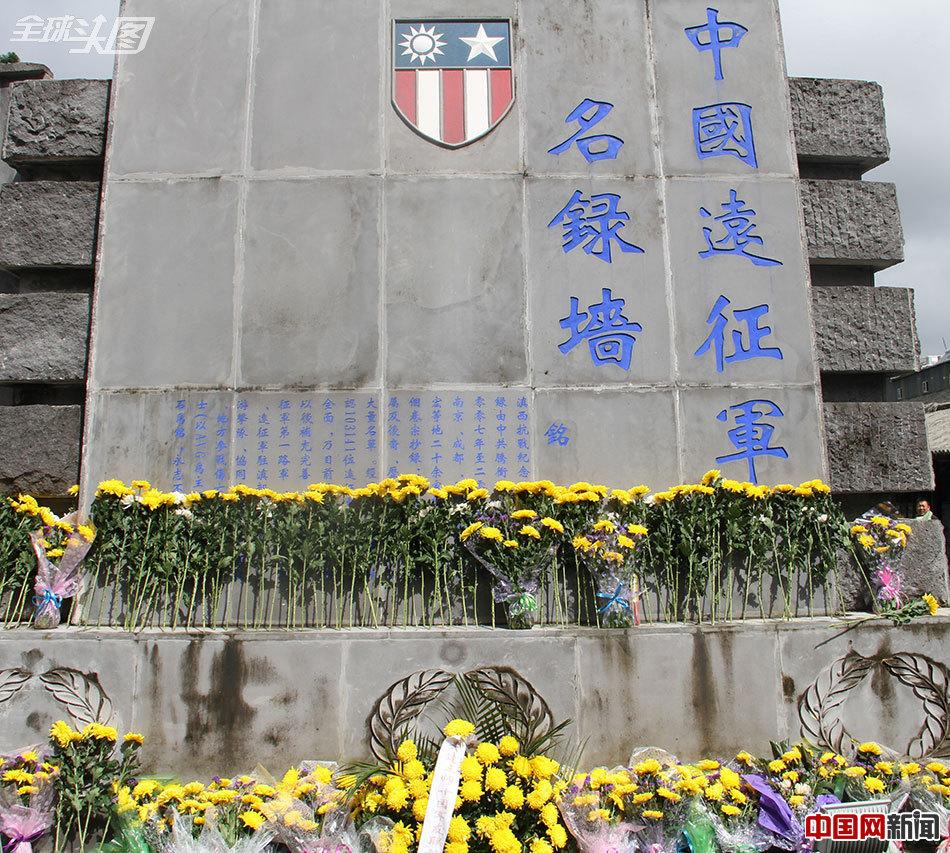
Baoshan Guoshang Muyuan.
What to Expect
- Cemetery Layout: The site spans over 53,300 square meters and features numerous monuments, memorials, and gravestones dedicated to the soldiers who fell during the war. Here, you’ll find:
- Zhonglie Shrine: A hall dedicated to the spirits of the martyrs.
- Memorial Tower: A significant structure commemorating the heroes of the past.
-
Graves and Monuments: Over 3,346 gravestones honoring Chinese soldiers and allied forces who lost their lives in the region.
-
Exhibits: The adjacent Yunnan-Tengchong Anti-Japanese War Memorial Museum houses artifacts, historical documents, photographs, and multimedia displays that narrate the story of the war and the sacrifices made during the campaign.
-
Atmosphere: Visitors often describe the cemetery as a solemn and reflective space. The serene environment, combined with the historical significance, creates a powerful experience that encourages contemplation.
Tips for Visiting
- Respectful Behavior: As a site of remembrance, maintain a respectful demeanor while exploring the cemetery. Speaking in hushed tones and refraining from disruptive activities is appreciated.
- Guided Tours: Consider joining a guided tour for an in-depth understanding of the history and significance of the site. Local guides can provide valuable insights and stories that enhance the experience.
- Photography: While photography is generally allowed, be mindful of the surroundings and the nature of the site. Avoid taking photos of other visitors without their consent.
- Weather Preparedness: Yunnan’s weather can be unpredictable. Check the forecast and dress appropriately. Comfortable walking shoes are advisable, as you’ll likely be exploring the grounds for a few hours.
Nearby Attractions
After visiting the cemetery, take the opportunity to explore nearby attractions:
– Tengchong Hot Springs: Known for its natural thermal springs, offering a relaxing experience after a day of exploration.
– Heshun Ancient Town: A charming town with rich cultural heritage, perfect for a leisurely stroll and enjoying local cuisine.
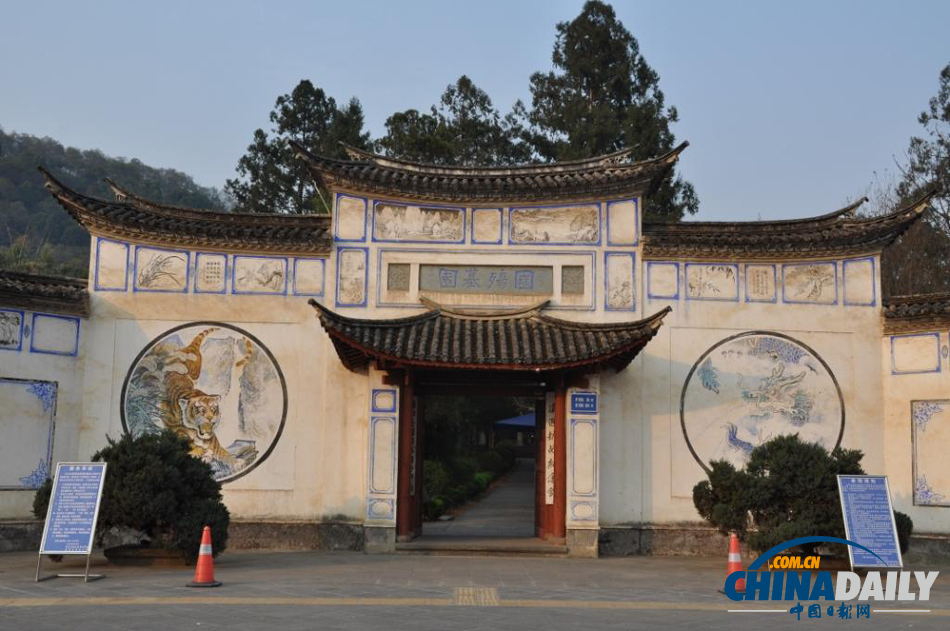
Baoshan Guoshang Muyuan.
Conclusion
The Baoshan Guoshang Muyuan is more than just a cemetery; it is a place of profound educational value, offering insights into a crucial era of Chinese history. Whether you are a history enthusiast or a casual traveler, a visit here is both moving and enlightening, serving as a reminder of the sacrifices made for peace and freedom.
Tickets, Hours, and Booking
Visiting Baoshan Guoshang Muyuan (国殇墓园) is a deeply moving experience, and planning your trip is essential to make the most of it. The memorial park is open to the public, allowing visitors to pay their respects and learn about the significant historical events surrounding the site.
Ticket Information
-
Admission Fee: Entry to the Baoshan Guoshang Muyuan is free of charge. This makes it accessible for everyone who wishes to honor the memory of the brave soldiers who sacrificed their lives during the Second Sino-Japanese War.
-
Opening Hours:
- Tuesday to Friday: 09:00 AM – 05:00 PM
- Saturday and Sunday: 09:00 AM – 05:30 PM
- Monday: Closed
Please note that the last entry is typically 30 minutes before closing time.
-
Location: The memorial is situated in Tengchong, Yunnan Province, near the banks of the Die Shui River and the northern foothills of Laifeng Mountain.
-
Visitor Tips:
- Arrive early to fully explore both the memorial park and the adjacent museum, which houses extensive exhibits on the history of the War of Resistance.
- While the entry is free, consider donating to support the maintenance of the park and its educational initiatives.
- Guided tours may be available for those looking for a more in-depth understanding of the site’s historical context.
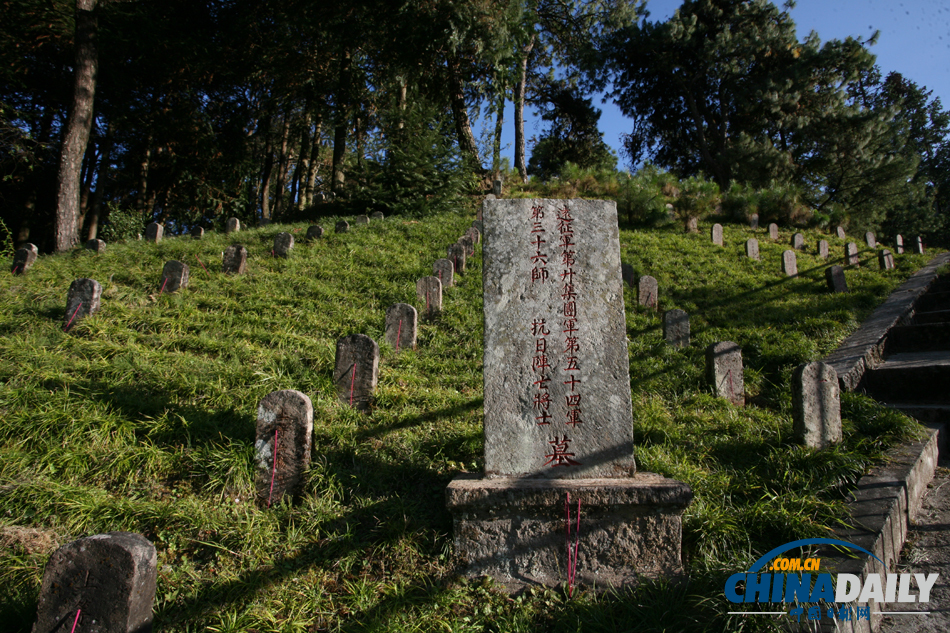
Baoshan Guoshang Muyuan.
This memorial park not only serves as a place of remembrance but also as an educational resource, illustrating the valor and sacrifices made during one of the pivotal conflicts in Chinese history. Embrace the opportunity to reflect and learn during your visit to this significant site.
How to Get There
Reaching Baoshan Guoshang Muyuan (国殇墓园) in Tengchong is an integral part of the experience, as the site is nestled in a picturesque area with scenic landscapes. Here’s a comprehensive transportation guide to help you navigate your way to this significant historical landmark.
Getting There by Air
The nearest airport to Baoshan Guoshang Muyuan is Tengchong Airport (TCZ), which is approximately 15 kilometers away from the museum and cemetery. This airport offers domestic flights from major Chinese cities, such as Kunming and Chengdu. Upon arrival, you can hire a taxi or book a ride-sharing service for a short trip to the memorial.
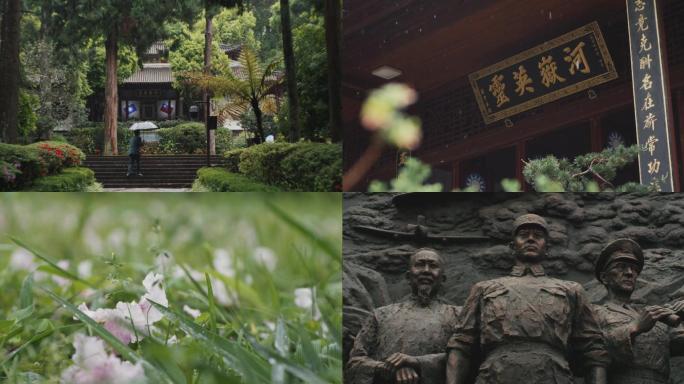
Baoshan Guoshang Muyuan.
By Train
For those preferring to travel by train, the Baoshan Railway Station serves as a key hub, connecting you to various cities across China. From Baoshan, you will need to take a bus or taxi to get to Tengchong, which is about 80 kilometers away. The bus journey typically takes around 1.5 to 2 hours, depending on traffic conditions.
Buses and Public Transport
If you are already in Tengchong or nearby towns, local buses frequently run to Baoshan Guoshang Muyuan. Look for the Tengchong West Bus Station where you can catch a bus heading towards the memorial. The ride offers a glimpse of the stunning local scenery, taking about 40 minutes from the town center.
Taxi and Ride-Sharing Services
Taxis are a convenient option for visitors. They are readily available throughout Tengchong and can be hailed directly or booked through various ride-sharing apps. This is an ideal way to make your visit more comfortable, especially if you are traveling in a group or carrying luggage.

Baoshan Guoshang Muyuan.
Renting a Car
For those who prefer the freedom of self-driving, car rentals are available in Tengchong. This option gives you the flexibility to explore the surrounding areas at your own pace. The roads leading to Baoshan Guoshang Muyuan are well-maintained, and the picturesque landscapes make for an enjoyable drive.
Local Tip
Regardless of your mode of transportation, it’s advisable to check the weather conditions before your journey, as the area can experience varying weather patterns. Early mornings or late afternoons offer the best light for photography and a more immersive experience at the memorial.
Accessibility
Baoshan Guoshang Muyuan is designed to be accessible for all visitors. The site has paved paths and facilities to accommodate those with mobility challenges. If you require assistance, staff on-site are available to help, ensuring everyone can pay their respects and engage with the history presented.
By following these transportation tips, you’ll have a seamless journey to Baoshan Guoshang Muyuan, allowing you to fully absorb the historical significance and tranquil beauty of this important site.
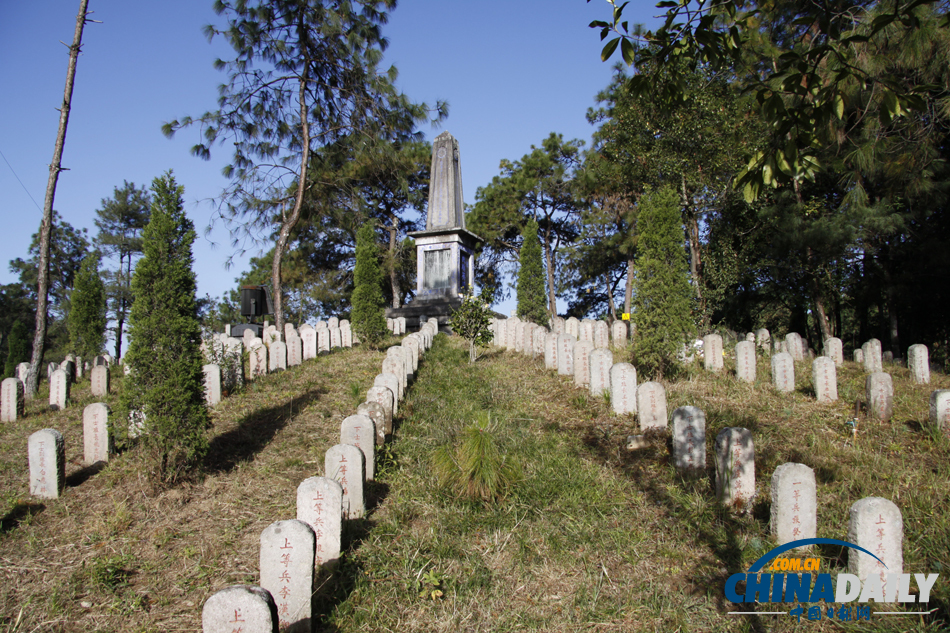
Baoshan Guoshang Muyuan.
Local Cuisine and Accommodation
When visiting the Baoshan Guoshang Muyuan, also known as the National Martyrs’ Cemetery, you’ll find a range of culinary delights and accommodation options that enhance your experience in this historically rich area.
Culinary Delights
- Niuniu’s Copper Pot Beef Hotpot (牛牛家铜瓢牛肉)
- Location: Near Heshun Ancient Town
- Cuisine: Hotpot
-
Description: Renowned for its exquisite beef hotpot, this restaurant features a charming decor that reflects the local culture. Diners can enjoy tender slices of beef cooked at their table, accompanied by a variety of fresh vegetables and house-made sauces. The inviting atmosphere makes it a perfect stop after a day of exploring.
-
Yuqing Garden (玉泉园)
- Location: Close to the National Martyrs’ Cemetery
- Cuisine: Yunnan Cuisine
-
Description: This restaurant offers a serene garden setting, complete with fish ponds and traditional architecture. Guests can enjoy authentic Yunnan dishes while watching performances of local ethnic traditions. The ambiance is both relaxing and culturally enriching.
-
Qiaoxiang Zhai (侨香斋)
- Location: Downtown Tengchong
- Cuisine: Yunnan Cuisine
- Description: As an old establishment, Qiaoxiang Zhai is famous for its traditional dishes that celebrate the flavors of Yunnan. The menu features a variety of local specialties, providing a taste of the region’s culinary heritage in a charming, rustic setting.
Accommodation Options
- Tengchong Yunsu Hotel (腾冲云宿酒店)
- Type: Boutique Hotel
-
Description: This boutique hotel combines modern comfort with traditional design elements. Located conveniently near the National Martyrs’ Cemetery, it offers cozy rooms with stunning views of the surrounding landscape. Guests can enjoy amenities like free Wi-Fi and a restaurant serving local dishes.
-
Heshun Ruyuan Inn (和顺瑞苑客栈)
- Type: Guesthouse
-
Description: Nestled in the heart of Heshun Ancient Town, this charming guesthouse provides an intimate atmosphere for travelers. The inn features elegantly decorated rooms with local art, and guests can unwind in the courtyard while enjoying the peaceful surroundings.
-
Tengchong Hot Spring Resort (腾冲热海温泉度假村)
- Type: Resort
- Description: For those looking to relax, this resort offers luxurious accommodations alongside natural hot springs. Guests can indulge in spa treatments or soak in the therapeutic waters, making it an ideal retreat after a day of sightseeing.
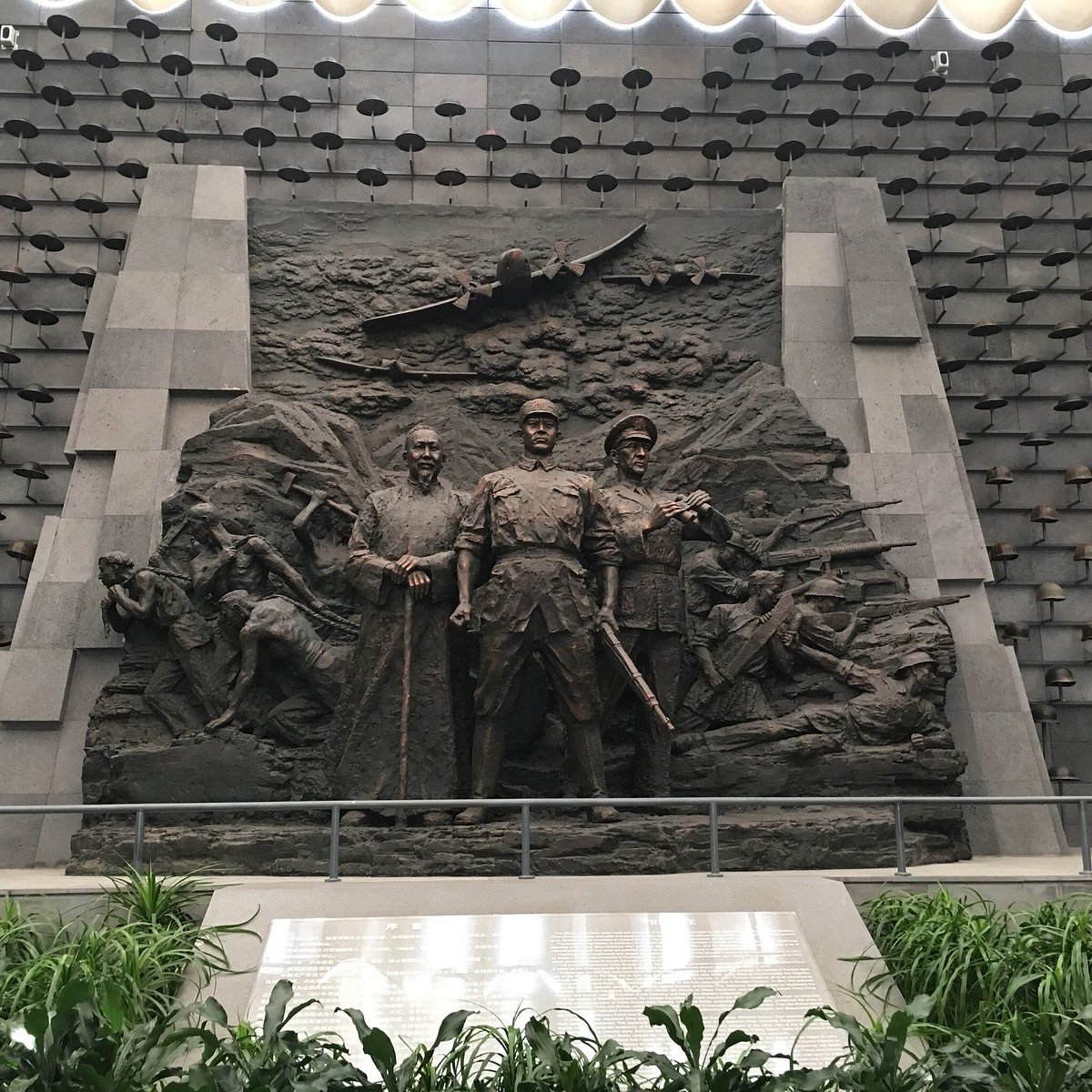
Baoshan Guoshang Muyuan.
Final Thoughts
Whether you’re savoring the rich flavors of Yunnan cuisine or relaxing in one of the area’s cozy accommodations, your visit to Baoshan Guoshang Muyuan will be complemented by a taste of local culture and hospitality. Don’t miss the opportunity to engage with the history and beauty of this significant location while enjoying the culinary and lodging options available.
Frequently Asked Questions
-
What is the significance of Baoshan Guoshang Muyuan?
Baoshan Guoshang Muyuan, also known as the National Martyrs’ Cemetery, is a memorial site dedicated to the soldiers of the Chinese Expeditionary Force who fought bravely during the Second Sino-Japanese War. It honors the memory of those who sacrificed their lives in the Battle of Tengchong and plays a crucial role in educating visitors about this significant period in Chinese history. -
Where is Baoshan Guoshang Muyuan located?
The cemetery is situated in Tengchong County, Yunnan Province, near the banks of the Die Shui River and the northern slopes of Laifeng Mountain. It is part of a larger complex that includes the Tengchong Western Anti-Japanese War Memorial Museum. -
What are the visiting hours for the cemetery?
Baoshan Guoshang Muyuan is open Tuesday to Friday from 9:00 AM to 5:00 PM, and on weekends from 9:00 AM to 5:30 PM. The site is closed on Mondays, so plan your visit accordingly. -
Is there an admission fee to enter Baoshan Guoshang Muyuan?
Admission to Baoshan Guoshang Muyuan is free of charge, making it accessible for all visitors who wish to pay their respects and learn about the history of the region. -
What facilities are available at the site?
The cemetery features various facilities including a main entrance, a memorial hall, a central altar for honoring heroes, numerous tombstones for fallen soldiers, and a memorial tower. There are also exhibition halls that showcase artifacts and photographs related to the Anti-Japanese War. -
Can visitors learn about the history of the Anti-Japanese War at the site?
Yes, the cemetery is equipped with informative displays and exhibits that detail the history of the Anti-Japanese War, particularly the events surrounding the Battle of Tengchong. Guided tours are often available to provide deeper insights. -
Are there any nearby attractions to visit after the cemetery?
Yes, visitors can explore the Tengchong Western Anti-Japanese War Memorial Museum, which is adjacent to the cemetery. Additionally, the area is known for its scenic beauty, including the Die Shui River and surrounding mountains, which offer opportunities for hiking and photography. -
What should visitors keep in mind while visiting the cemetery?
Visitors are encouraged to maintain a respectful demeanor while at the cemetery, as it is a site of remembrance for those who gave their lives. It’s advisable to dress modestly and to observe any guidelines provided by staff to ensure a respectful and meaningful experience.
Final Thoughts on Your Trip
Visiting the Baoshan Guoshang Muyuan is not just a journey to a historical site; it is an emotional pilgrimage that resonates deeply with the spirit of sacrifice and resilience. As you walk through the tranquil grounds of this memorial, surrounded by the solemn beauty of the landscape, you are reminded of the bravery of those who fought valiantly against overwhelming odds during the Second Sino-Japanese War. The tombstones and monuments tell stories of courage, loss, and an unwavering commitment to national integrity.
The accompanying museum enriches this experience, offering a comprehensive narrative of the wartime struggles faced in this region. Each exhibit serves as a poignant reminder of the past, urging visitors to reflect on the sacrifices made by countless soldiers and civilians. This memorial stands as a powerful testament not only to the sacrifices of the past but also as an educational hub for future generations, emphasizing the importance of remembering history to foster peace and understanding.
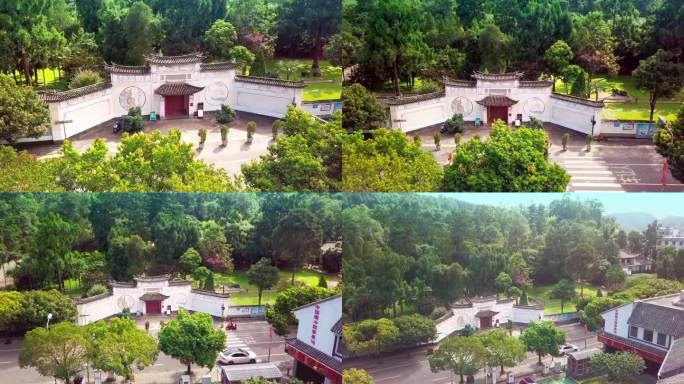
Baoshan Guoshang Muyuan.
A visit to the Guoshang Muyuan is a call to honor the memories of those who came before us. It invites you to carry forward their legacy of resilience, courage, and patriotism. As you leave, take with you a renewed sense of appreciation for peace and the freedom that many fought to secure. Whether you are a history enthusiast or simply seeking a moment of reflection, this site offers an invaluable experience that echoes through the halls of time, reminding us that the sacrifices of the past should never be forgotten.
